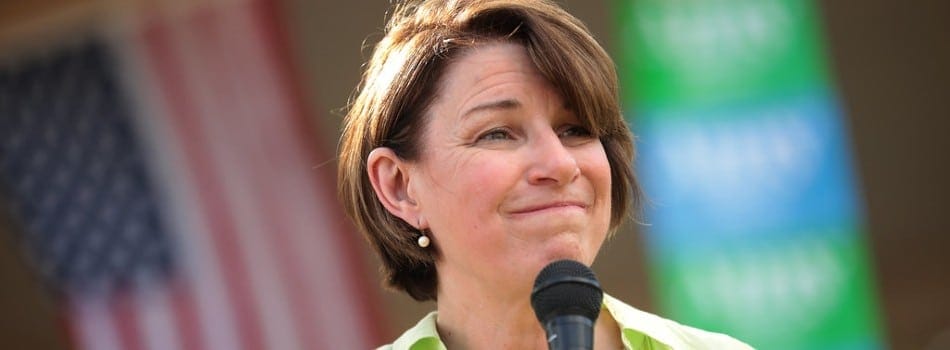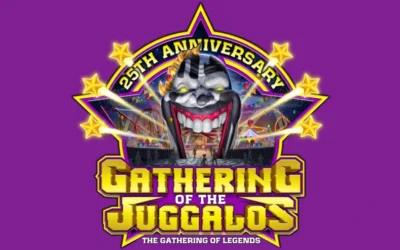Minnesota Senator Amy Klobuchar hinted at the potential for upcoming legislation aimed at the ticketing industry, specifically related to increasing transparency for consumers. The Democrat indicated that something is in the works during a recent interview with NPR related to the Ticketmaster/Live Nation role in the Taylor Swift fiasco in November, which has spurred the Senate Judiciary Subcommittee on Competition Policy Antitrust and Consumer Rights – which she chairs – to announce plans for hearings in the near future.
Klobuchar’s remarks regarding the potential for legislation came midway through an interview with Eric Deggans on NPR’s All Things Considered, after she was asked what she and fellow committee members hoped to accomplish with their hearings.
“No. 1, when we have these hearings, the witnesses are under oath. And in the past, the testimony and the senators’ questions actually creates a record that’s helpful for the Justice Department as well as members of Congress and the administration,” she says. “Secondly, legislation – we are working right now on the bipartisan legislation – I can’t go into all the details – but specific to the ticket industry in terms of transparency and the like.”
Throughout the interview, Sen. Klobuchar pulled no punches in her assessment of Ticketmaster/Live Nation and their role at the center of live entertainment and ticketing.
So what’s before us is something that’s too big, and that is Ticketmaster, stemming from a 2010 merger in which Live Nation and Ticketmaster were allowed to combine. They operated under a consent decree for years. But what’s been happening is they’ve just been getting bigger and bigger…
They own venues, so they’re competing with independent venues all the time. And venue operators are concerned that if they don’t use Ticketmaster as their primary ticketing service, then their – Live Nation’s concert promotion business won’t book the best shows at their venues. There’s too-high fees. There’s site disruptions, as we’ve seen from the Taylor Swift incident. There’s slow queues. And it isn’t just Taylor Swift concert. A lot of these hidden fees, high fees, are going on because there is no incentive for fair prices and superior offerings and innovation if you’re the only company in town.
The movement towards meaningful federal legislation makes sense, according to the Senator, because the attention of the public is high in the wake of high profile fan anger surrounding the Taylor Swift debacle, where fans struggled to access tickets amid system crashes and then the entertainment giant cancelled the general public sale entirely. In the wake of those highly public failures, lawmakers have joined the chorus of condemnation and launched multiple lines of inquiry into what went wrong.
Rep. Bill Pascrell and more than 30 other lawmakers wrote a letter demanding a Department of Justice investigation of Live Nation on antitrust grounds, which reporting from the New York Times indicates was already underway before the Swift mess. Sen. Klobuchar’s committee announced its own plans to hold a hearing, while Sen. Marsha Blackburn (R-MO) called on the Federal Trade Commission to dig in on what went wrong, with hopes of ensuring that automated “bots” aren’t part of the problem – since Ticketmaster continues to blame them when things go wrong, but only one actual enforcement action has taken place in more than five years of them being illegal and subject to penalties. Most recently, another House committee announced plans for hearings.
“There becomes this pitch point where there’s so much anger from the public, and now it might be online,” Sen Klobuchar told NPR on the building pressure from the public to address the terrible consumer experience in ticketing. “Before, it was, you know on street corners and in farmers’ halls. But when it gets to that point, that’s when something gets done.”
That the senator specifically mentioned transparency is very notable, as it is a factor of the ticket-buying experience that companies like Live Nation Entertainment have lobbied hard against whenever reform in that area has been pushed by lawmakers.
It is well known that promoters, venues, and artists hold back a huge number of tickets for most events – meaning that tickets are not actually put on sale, but rather diverted to other channels. Tickets can be held back for pre-sales, or put to fan clubs, or held by artists for production reasons. They can also be held back for more nefarious purposes – like pretending that a show is sold out to keep prices sky-high while small numbers are dripped out for sale through the box office at top dollar, or even moved through resale websites by artists and promoters directly.
There are numerous examples of holdbacks being the real reason for consumer issues in ticketing, instead of “bots” or ticket brokers snagging all of the tickets, as Live Nation claims was the case in the Taylor Swift sale. A government audit released in Hawaii showed that over half of available tickets – in some instances as much as 93 percent – were held back from consumers, while “bots” played no meaningful role.
“Our findings show that many of these holds and presales are kept as inside information and, more often than not, the general public is unaware of the limited availability of tickets,” the report reads, in part. “Robot sales or bulk on-line sales do not have a significant impact on local sales or availability,” it reads. “We found that online resales, robot and bulk ticket purchases do not appear to pose a high risk to local ticket sales and availability.”
Former New York Attorney General Eric Schneiderman’s office published a comprehensive study on ticketing that came to similar conclusions – holdbacks are an enormous factor in consumer ticketing issues, and are directly responsible for consumers often believing events are sold out, or close to sold out, when they are far from it – triggering fans to purchase tickets at inflated prices. State Senator James Skoufis of New York recently pointed this out, directly in the wake of the Taylor Swift bruhaha, indicating his belief that there are probably thousands of tickets that remain unsold for the supposedly sold out Eras tour.
“Holdbacks are one of the dirtiest secrets in the industry,” Sen. Skoufis wrote in an opinion piece published in November. “It’s likely that at each of Taylor Swift’s 52 upcoming concerts, thousands of tickets will be “held back” and never released to the general public… Holdbacks should be banned or severely limited.”
Despite all of this evidence, there is no federal or even local law that demands transparency on the number of tickets available to the public at any given time, largely because of the massive lobbying power of Live Nation Entertainment and other promoters who fight hard to keep them from being passed whenever they are brought up in legislative sessions. In New York, efforts to bring transparency for ticket availability were defeated in 2017 and again more recently, when Sen. Skoufis introduced legislation that initially had transparency requirements that were subsequently stripped from the bill before it passed the state assembly.
In Canada, Ontario lawmakers dropped proposed transparency requirements from legislation there after promoters lobbying to have the requirements removed told lawmakers that tours would skip Ontario if such disclosures were required – despite Ontario being home to approximately 40 percent of the entire population of Canada, including Toronto being the nation’s largest city.
Efforts to introduce transparency for ticket-buying consumers have been made at the federal level in the United States as well, recently as a part of Pascrell’s comprehensive BOSS Act. It was last introduced by Rep. Pascrell and fellow democrats Rep. Frank Pallone (NJ) and Sen. Richard Blumenthal (CT) in 2019, but failed to gain traction.
It is unclear whether Senator Klobuchar’s comments refer to a pending reintroduction of the BOSS Act, or something specific to transparency without the additional reforms proposed within that legislation. An email from TicketNews to her press contacts asking for clarification on the potential legislation has not yet received a response as of Friday morning.
Senator Klobuchar’s full interview from NPR’s All Things Considered is available here:




